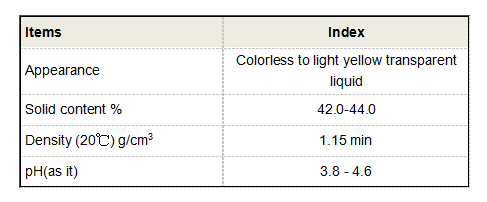Understanding the Role of Flocculation Chemicals in Water Treatment Processes
The Role of Flocculation Chemicals in Water Treatment
Flocculation is a crucial process in water treatment that enhances the removal of suspended solids, colloids, and impurities from water. This technique employs flocculation chemicals, also known as flocculants, to aggregate particles, facilitating their sedimentation and filtration. Understanding the importance of flocculation chemicals and their mechanisms is vital for optimizing water treatment processes in various industries, including municipal water supplies, wastewater treatment, and industrial applications.
Flocculation chemicals are typically polymers or chemical agents that promote the agglomeration of particles. They work by neutralizing the charges on suspended particles, allowing them to clump together and form larger aggregates, or flocs. The primary types of flocculants used include inorganic coagulants, such as aluminum sulfate (alum) and iron salts, as well as organic polymers like polyacrylamide. Each type of flocculant has its unique properties and applications, depending on factors like water chemistry, turbidity levels, and the specific type of contaminants present.
The process of flocculation generally consists of three stages coagulation, floc formation, and sedimentation. Initially, coagulants are added to destabilize the colloidal particles in the water, which is essential for the subsequent flocculation steps. During floc formation, the flocculants facilitate the aggregation of these destabilized particles, resulting in larger flocs. Finally, the sedimentation phase allows gravity to draw the heavier aggregated particles to the bottom of the treatment vessel, where they can be removed easily.
flocculation chemicals

One of the most significant benefits of using flocculation chemicals is the improvement in water clarity and quality. By effectively removing suspended solids, flocculation enhances the overall performance of water treatment systems, leading to cleaner effluent that meets regulatory standards. Additionally, flocculation helps reduce the burden on filtration systems, prolonging their lifespan and improving operational efficiency.
Moreover, flocculation chemicals are essential in various industries where water quality is critical. In the food and beverage sector, flocculants are used to clarify juices and beverages, ensuring they are aesthetically pleasing and free from impurities. In the mining industry, flocculation aids in the separation of valuable minerals from waste materials. Similarly, in the pharmaceutical industry, the clarity of water used in product formulation is paramount, making flocculants an integral part of the purification processes.
However, there are considerations and challenges associated with the use of flocculation chemicals. The selection of the appropriate flocculant is crucial, as the wrong choice can lead to inadequate particle removal or the formation of undesired byproducts. Additionally, the environmental impact of chemical discharge must be taken into account, as excess flocculants can negatively affect aquatic ecosystems. Therefore, ongoing research and development are necessary to create more sustainable, efficient flocculation alternatives.
In conclusion, flocculation chemicals are vital components in the water treatment process, significantly improving the quality of water across various applications. By effectively aggregating suspended particles and enhancing sedimentation, these chemicals play a crucial role in producing safe, potable water and ensuring compliance with environmental regulations. As challenges in water treatment continue to evolve, the role of flocculation chemicals remains more critical than ever.
-
Water Treatment with Flocculant Water TreatmentNewsJun.12,2025
-
Polymaleic AnhydrideNewsJun.12,2025
-
Polyaspartic AcidNewsJun.12,2025
-
Enhance Industrial Processes with IsothiazolinonesNewsJun.12,2025
-
Enhance Industrial Processes with PBTCA SolutionsNewsJun.12,2025
-
Dodecyldimethylbenzylammonium Chloride SolutionsNewsJun.12,2025





